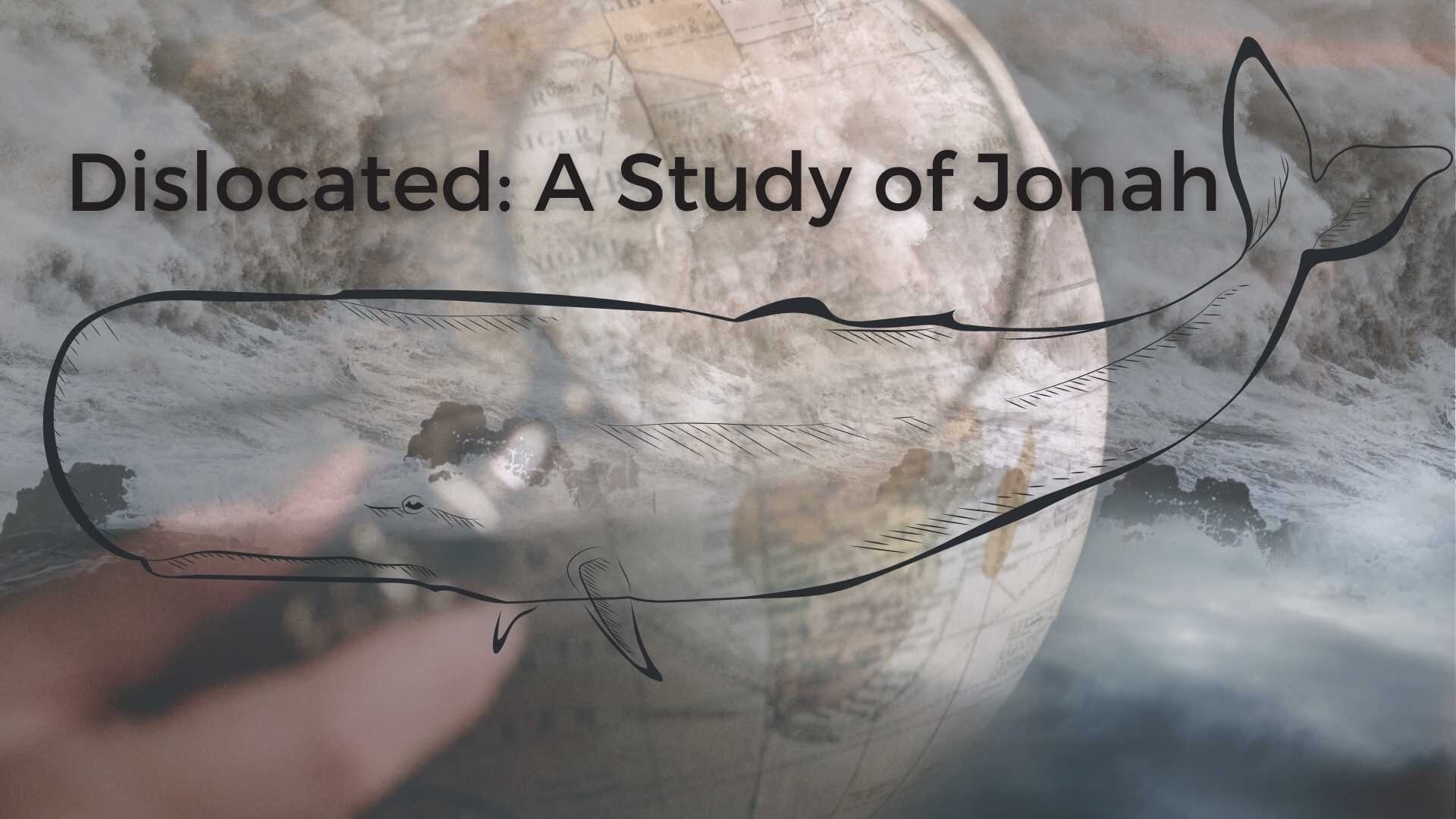Dislocation: Jonah in the Rearview
“A Jonah lurks in every Christian heart, whimpering his insidious message of smug prejudice, empty traditionalism, and exclusive solidarity. He that has ears to hear, let him hear and allow the saving love of God which has been outpoured in his own heart to remold his thinking and social orientation.” – Leslie Allen
“What Jonah wanted was a God made in his own narrow-hearted image; a God with his own prejudices who would only come into fellowship with sinners under certain restrictive conditions.”- Sinclair Ferguson
“The last enemy to be destroyed in the believer is self. It dies hard. It will make any concessions if only it is allowed to live. Self will permit the believer to do anything, give anything, sacrifice anything, suffer anything, go anywhere, take any liberties, bear any crosses, afflict soul and body to any degree- anything, if it can only live. It will consent to live in a hovel, in a garret, in the slums, in far away heathendom, if only its life can be spared.” – Anonymous
Jonah is one of the easier minor prophets to read with understanding. Most of it is a narrative and for that reason alone, we can track better what is going on in its pages. Further helping us are the major themes of the story which feel all too familiar. Themes like:
God giving a mission to one of His children only to have that child resist that mission.
God seeing evil in the world and seeking to deal with it.
God having mercy on people who are far from Him and full of sin.
Human confusion and frustration in the face of God’s sovereignty and saving.
All of these threads, which are woven into Jonah’s book, are ones we see in our own life’s tapestry with God. How often we encounter them or the degree to which we see them for what they are is of course unique to us and our journey with God but, they are all there.
Dislocated was the heading under which we studied Jonah. There were primarily two reasons for this word organizing our time together in the book.
First, it seems to follow well the author’s intention for us as we read. We cannot help but notice how time and again the narrative puts people and actions out of place. A prophet who refuses to go and announce coming judgment on an evil pagan city. Sailors who though pagans demonstrated a far greater fear for and worship of Yahew than Jonah. A fish that swallows a man but doesn’t kill him. A prophet who prays with gratitude from the belly of a fish. Nineveh turns with just one prophet’s brief warning, Samaria and Jerusalem heard God’s prophet’s over hundreds of years crying out in warning but never was such a turning from evil recorded in their walls. And finally, the startling end, a prophet angry with God for daring to have mercy on people who repent rather than destroy them.
Secondly, the dislocation is what happens to us as we read. We find ourselves pulled out of joint as it were. This happens generally in a two-part process. First, we see clearly the foolishness of our man Jonah. And naturally we rebuke him internally. Then, we see ourselves as Jonah and we acknowledge our need for rebuke, repentance and (by God’s mercy) forgiveness to live differently here forward.
Dislocation was my hope for me personally and for us as a family of faith. Dislocation. Not because I thought it would be fun to see how far we could stretch in a year full of “unprecedented” but because, I want to believe God has in mind a far higher purpose than discomfort. He wants to dislocate us so that we can see how out of sync we are with His character and heart for a lost world. He wants to pull us out of joint so that we can see how altogether necessary it is for us to be transformed. To die to self. God wants us to stop being Jonah. Because, like Jonah, we’ve been given a message to declare to wicked people. And like Jonah, if we are not transformed by the mercy we’ve received, we may carry the message faithfully but despise the results. Like Jonah, we could see God’s mercy showered on others and never fully recognize that we’ve been drenched in it all along.
So, I hope that in some way you have let God dislocate you as we’ve sorted through this tale of a defiant prophet. And I hope that you won’t stay out of joint. I pray that God in His mercy makes it so that you quickly repent and allow the Great Physician to put in its rightful place that which sin and self has disfigured.
I leave off with a final quote and then a song to enjoy. Here is how Sinclair Ferguson frames the ‘non-ending’ of the book of Jonah:
“It carries no conclusion because it summons us to write the final paragraph. It remains unfinished, in order that we may provide our own conclusion to its message For you are Jonah, I am Jonah. We recognize ourselves in the story of this man’s life. We stand together in need of the mercy of God to enable us, from this day on, to be obedient to his commands, and to live to the praise of his glorious grace.”
And here is a song to enjoy! His Mercy Is More
